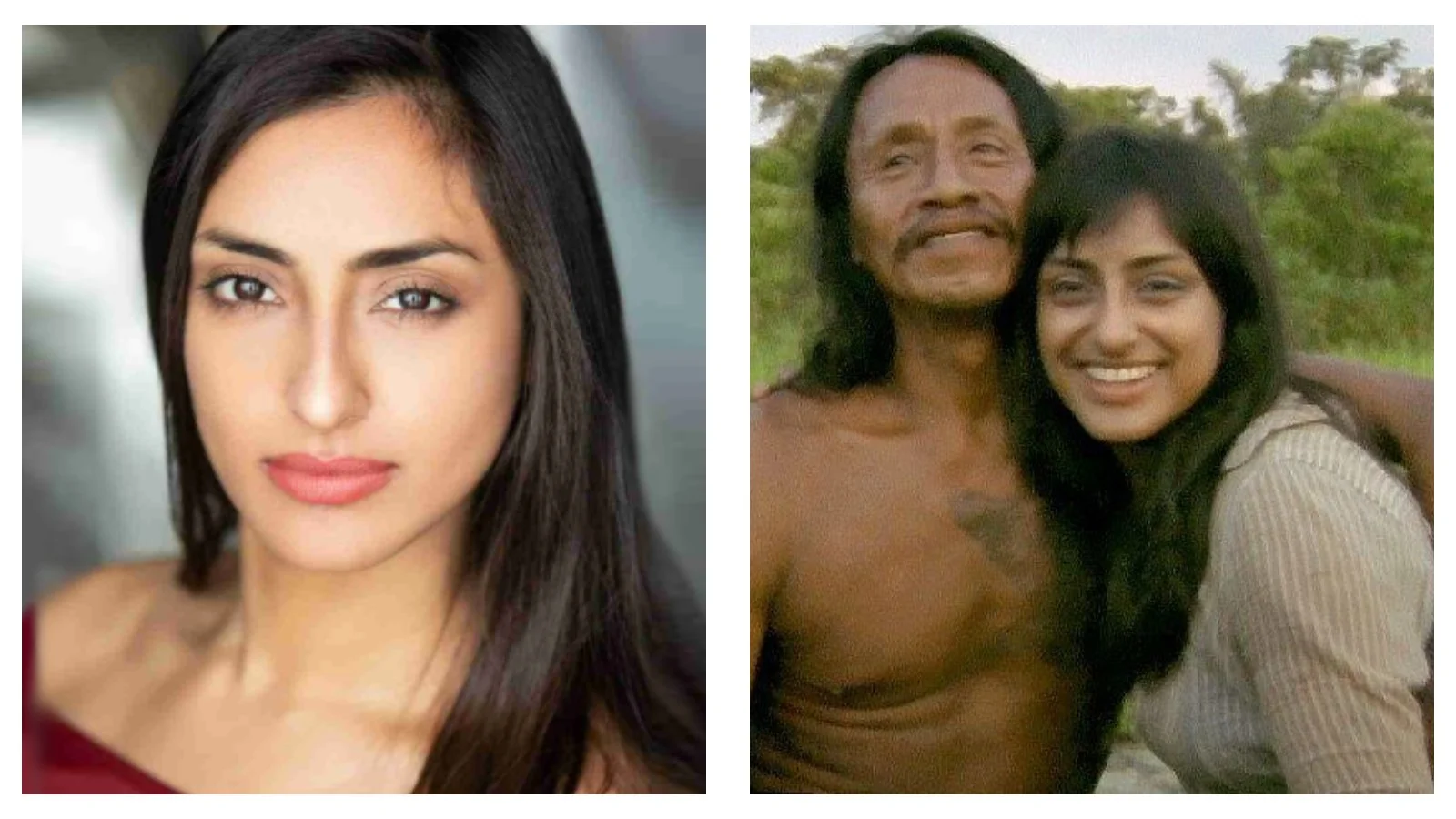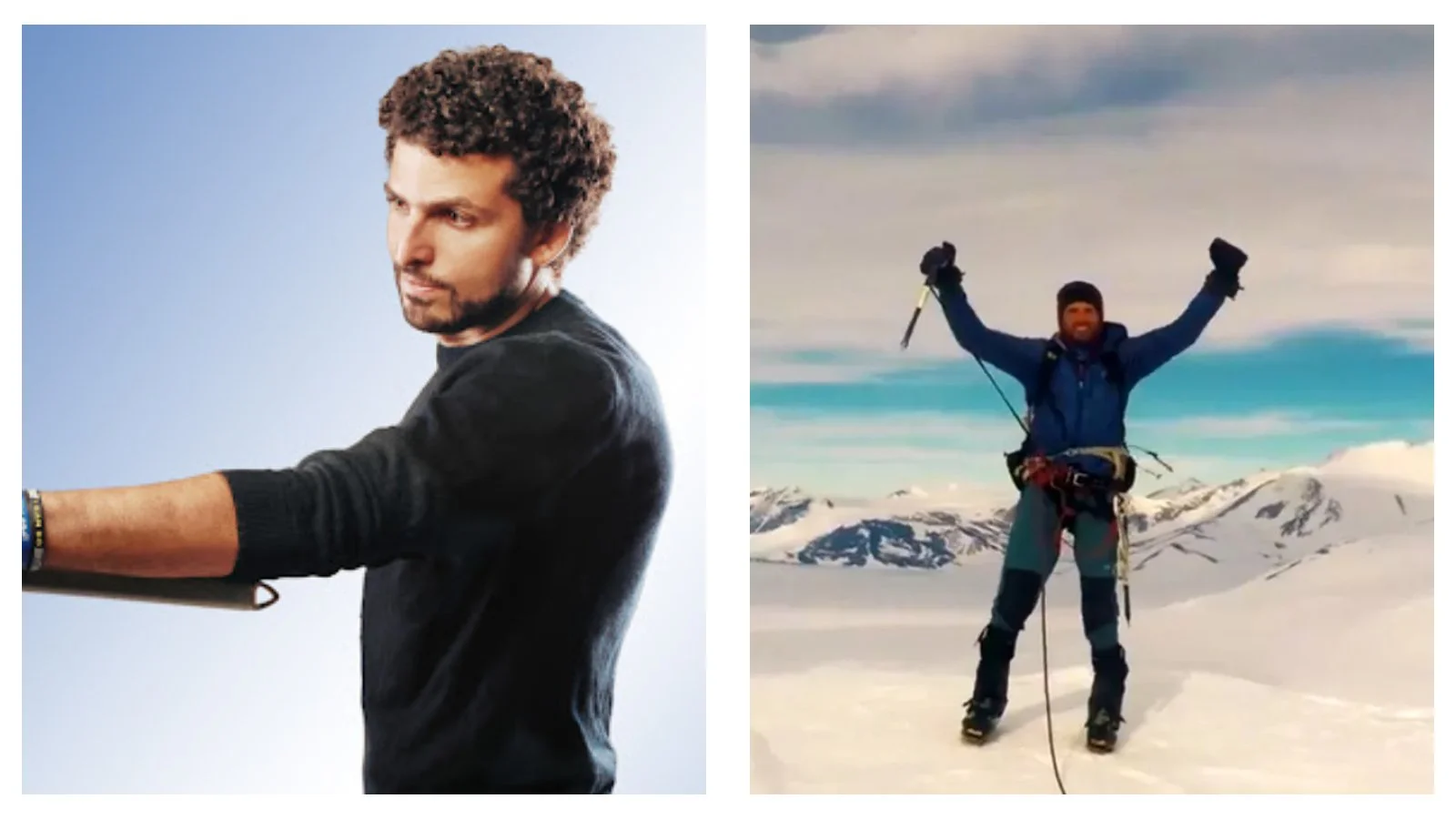From the Amazon to outer space: Sarah Begum on exploration, culture, and climate action
Sarah Begum is an award-winning explorer, anthropologist, and filmmaker who became the youngest woman to live with the Huaorani tribe in the Amazon.
Crowned Warrior Queen and premiering her documentary Amazon Souls at Cannes, she has dedicated her career to amplifying indigenous voices. Today, she stands out as a global Climate Change speaker.
A Fellow of the Royal Geographical Society, Sarah has travelled the world investigating cultural survival, sustainability, and humanitarian issues.
Her work spans disaster awareness, women’s empowerment, and the preservation of fragile ecosystems. She blends adventure with advocacy to inspire global audiences.
Alongside her expeditions, Sarah hosts the TV and podcast series ‘Spaced Out!’, exploring space innovation and its impact on Earth.
She co-founded The Adventuress Club to champion women in exploration. In this exclusive interview with The Champions Speakers Agency, she shares her mission to unite storytelling with climate action.
Q: What inspired your Amazon adventure, and how did living with the Wani tribe shape your mission for cultural and environmental preservation?
Sarah Begum: “When I was young, I learned about deforestation in the Amazon rainforest at school, and ever since, it has become my dream to go there and live with the tribe.
“Over the years, I had visions of tribespeople calling me, or dreams about them, and I decided at the age of 21, when I was studying television and film at university, to use all my savings and make that childhood dream come true and go to the Amazon rainforest.
“So I went to live with the Wani tribe and I was hunting and gathering with warriors. Then they made me queen and asked me to bring back the message about preserving their culture, about protecting their land, and also promoting unity.
“When I came, I made a documentary about this experience called Amazon Souls, which premiered at the Cannes Film Festival.
“It was distributed worldwide. Then it was a coincidence when I had a meeting with the Ecuadorian government, the president's assistant, about introducing social and economic development programmes into the country instead of relying solely on oil for generating economic growth.
“At that time, the tribe contacted me and they sent me an email with a proposal. They asked me to pass it on to the Ecuadorian government.
“It was almost like a peace agreement, because they wanted to preserve their land - it was their home, it provided them sustenance, it was the only thing they knew, their way of life, their lifestyle.
“They wanted to protect that, preserve it, and promote their unique culture as well.
“But they were also open to oil exploration of the Amazon rainforest where they lived, as long as their home wasn't negatively impacted in any way.
“They were trying to understand the Ecuadorian government's perspective, and they were trying to achieve that kind of balance, that peace.
“I could understand both sides, and I could advocate for both sides as well. Now that I'm older and I've had access and exposure to more information, I'm able to just have empathy and understand that there needs to be a balance.”
READ MORE: From Everest to enterprise: Omar Samra’s journey as a global entrepreneur
Q: In creating your ESG platform, how do you see corporate sustainability and responsible travel intersecting to support global climate goals?
Sarah Begum: “ESG stands for Environment, Social and Governance. ESG promotes the sustainability of organisations around the globe. I was working on a startup called ESG Space, and I was developing a platform powered by AI to help organisations strategise and develop ESG reports.
“It's important because it helps organisations be more sustainable. Sustainability is a huge factor now for companies and organisations globally, because we need to combat climate change, and it has to be a collaborative, collective effort.
“Governments, organisations, individuals, non-government organisations, as well as charities - everyone working together with their ESG efforts, ESG opportunities, and strategies will help combat climate change and hopefully reduce global warming.
“We have the Paris initiative of keeping the world's temperature below two degrees. By everyone playing their part - especially corporations and organisations - such as keeping lights off when not in use, recycling, thinking about the type of energy they use, reducing waste, and considering distribution and stakeholders, progress can be made.
“The S stands for Social, which is a big one for me because it's an area of focus I've had in organisations I've worked with.
“It's really important because it helps companies think about board diversity, the composition of the board, how many women there are compared to men, and the different backgrounds of people.
“It could be diversity of mind as well as cultures, which helps innovation. When different people work together with different mindsets, there are different solutions to the same problem.
“And then the G is Governance - various policies and regulations that a company can abide by to help sustainability practices, including throughout their supply chains, with their stakeholders and employees.
“These policies will help shape their future and keep them sustainable. Investors are really interested in seeing end-of-year ESG reports by organisations, and this helps keep investment flowing.”
YOU MAY ALSO LIKE: From Lake District climb to global expeditions: Oli France on motivation, leadership and resilience
Q: How does space exploration, and the ‘overview effect’ it inspires, connect with travel’s ability to build empathy and drive action for Earth’s future?
Sarah Begum: “Space is a passion of mine. I really enjoy space exploration, learning about it, and I believe that the space sector is benefiting Earth in so many ways.
“The first is satellites. There are so many satellites around the globe from various organisations, doing various positive purposes. They help with communication, GPS, internet connectivity, broadcasting, agriculture, and defence.
“One of my favourite things is connectivity with satellites because they promote connectivity in rural parts of the world where people don't have internet access. Some organisations are doing that and helping more of the population go online.
“This adds a lot of value because when people are online, they have access to opportunities, including education. The more educated they are, the more opportunities they have, the more they grow. And the more they grow, it's better for their society, their nation, their population, and the people they come across, impact, and teach.
“The ISS - the International Space Station - is the largest satellite in space so far. It has a lot of groundbreaking scientific experiments, from studying the astronaut’s body in microgravity, to 3D printing tools, to researching cures for diseases such as cancer and MS.
“I was interviewing NASA scientists, engineers, and entrepreneurs for a podcast and video series I made called Spaced Out. They told me about the Mars rover missions, which I reported on for Space Channel a few years ago. NASA scientist Jim Green told me that Earth may be like Venus very soon because of global warming. If we don't act soon, we won't be able to preserve humanity.
“To preserve humanity, we need to populate Mars. Elon Musk is working on that with Starship, the biggest rocket he's been developing.
“So far, launches haven't been complete successes, but with each advancement, there's more success. I believe that spaceship is going to take us to Mars and help us become a space-faring civilisation.
“Space exploration and tourism are also very important because they help individuals experience the overview effect.
“When they see this beautiful blue and green marble from space, they understand that we are all one - living together as brothers and sisters, as fellow Earthlings.
“So we must preserve it. It helps people understand the importance of combating climate change, the sustainability needs and requirements for the planet and for people, and it helps with empathy and understanding.”
This exclusive interview with Sarah Begum was conducted by Megan Lupton of The Motivational Speakers Agency.
READ NEXT: How Roz Savage turned the ocean into her greatest teacher



